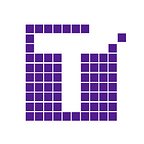Why Cyber Security Is So Important In A Digitalized Era
Digitalization, according to Gartner, Inc., is the process of employing digital technologies and information to transform business operations. Digitalization can also be said to be the process of converting communications, business functions, and business models into (more) digital ones.
Today, digitalization has found its way into almost every facet of business operations to influence the way things are done. It has paved the way for new business opportunities, breaking down limitations and fostering better collaboration between teams as well as keeping the entire ecosystem connected. However, with the many benefits of digitalization comes its own unique setbacks. The process of digitalizing a business involves integrating technology into existing systems to extend beyond the confines of traditional ICT, completely overhauling processes, strategies, and even company culture to give way for digital transformation. As more businesses move online, taking up DevOps, Cloud computing, big data analytics, mobile computing, blockchain, Internet of Things (IoT), and Artificial Intelligence (AI) to become more efficient, this creates room for digital risks better known as cyber threats. Thus, digitalization exposes businesses and the economy to security and privacy concerns with increasing cases of data breaches.
Digitalization comes with serious implications for critical sectors such as medical and financial institutions who have become highly susceptible to cyberattacks as a result of the sensitivity of data they handle. IT departments and CISOs must begin to take stock of vulnerabilities existing within their security systems to avoid issues like cyber attacks which, if targeted at financial institutions, for example, can take down an entire banking system, disrupting operations and process flow within a society. As more companies move away from on-premise applications to hosting in the Cloud or adopting a hybrid setup, IT admins while keeping all systems running, gradually have less grasp on managing security risks.
With the birth of a digital era, the world has become a global village with interwoven digital footprints and a network of interconnected systems. Businesses are more vulnerable than ever and cybersecurity must be taken seriously. The focus needs to shift from securing networks to protecting data spread in the Cloud, within systems, and on devices. There is a steady increase in the uptake of IoT and we’re witnessing the entrance of next-generation technologies into environments that are less than ideal in terms of security such as hospitals, industrial sites and even vehicles. This vulnerability opens a window for attack whereby databases or devices are hacked and turned into weapons of cyber warfare with the deployment of malware, viruses, phishing attacks, or even data leaks leading to a disruption of critical infrastructure which has been known to bring down military systems and wreak havoc on enterprises.
According to reports, Nigerian businesses have borne the brunt of cyber attacks more than any other African country even as most of these cases go unreported. Figures from ‘’The State of Cloud Security 2020 report’ by Sophos revealed that 86% of Nigerian organizations surveyed were affected by a Cloud security incidence, and 36% of attacks were through stolen credentials. As a matter of fact, 64% of cyberattacks in the country exploited misconfigurations on the organisation’s server. These attacks have become quite pervasive, from Business Email Compromises to phishing and social media hijacks.
With the proliferation of broadband giving more people access and the increase in the use of computers, mobile phones, and the associated technologies, cybercrimes will likely get worse as individuals become more exposed to attacks. Unfortunately, the uptake of Bring Your Own Device and Work From Home policies means these vulnerabilities will likely find their way into the corporate space which is why organizations need to move away from basic security practices and put a lot more effort into assessing their security vulnerabilities by integrating proper Advanced Threat Protection platforms to secure servers and endpoints. The government and other regulatory agencies also need to implement policies to effectively manage cybersecurity and collaborate with private and international entities to secure cyberspace.
How Can TSS Help?
Telios Support Services LTD is an ICT firm with a distributed engineering team operating out of Lagos, Nigeria. We improve businesses across the globe by providing end-to-end ICT solutions through our expertise in Cybersecurity, Digital Transformation, Cloud Engineering, DevOps, and custom Software Development.
At Telios, we can help you build cyber resilience by providing your business with multi-layered protection security services to defend your data and software from theft, loss or damage. We believe it is our job to help our customers excel in the modern age where disruptive solutions are released at an ever-increasing pace, and time to market is a key standard determining whether or not modern organisations will survive.
